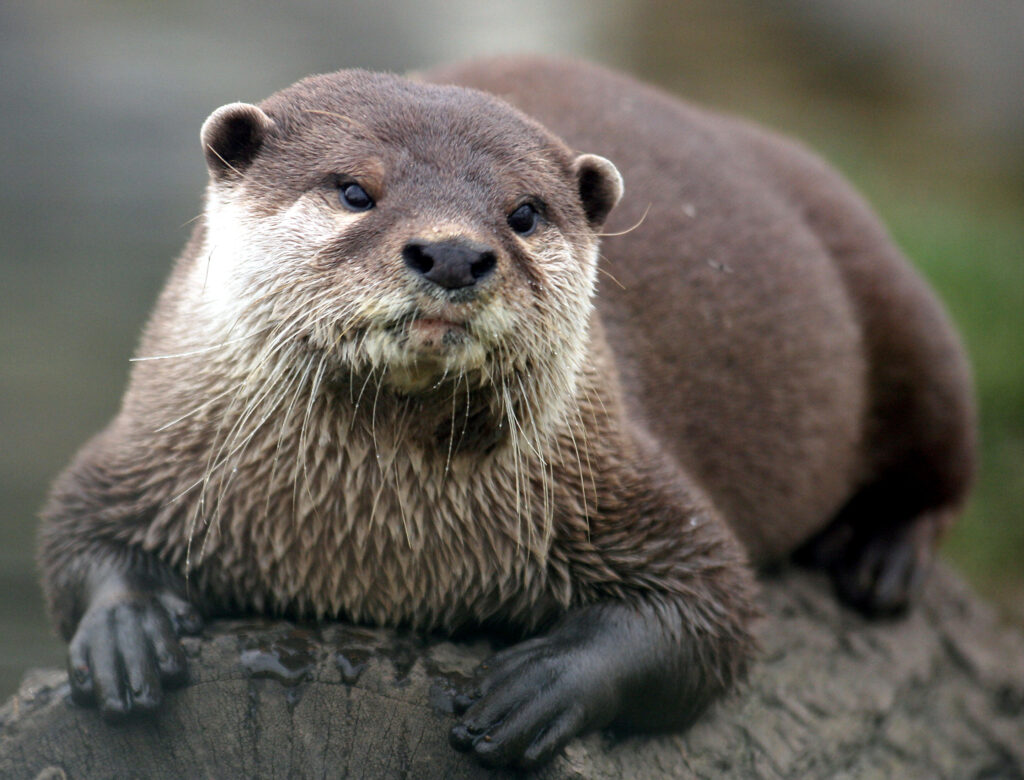Otters, these beloved aquatic mammals, often go viral on social media for their agility, intelligence, and cute appearance, leading many to dream of keeping them as pets. However, the reality is that Why Otters Don’t Make Good Pets is a complex issue. Experts worldwide, including in the United States, strongly advise against it due to serious legal, ethical, and practical reasons that are crucial to understand.
- Legal Warnings: Why Are Otters Banned as Pets?
The first and most important reason Why Otters Don’t Make Good Pets stems from legal restrictions. In most countries, particularly the U.S., otters are considered wildlife, and keeping them as pets is strictly regulated or entirely prohibited.

The multifaceted reasons for this ban include:
- Protected Species:
Many otter species, such as the Asian short-clawed otter, are endangered or near-threatened. They play a vital role in ecological balance. Capturing, selling, or keeping these animals from their natural habitat is a grave offense under wildlife conservation acts, leading to hefty fines and even prison sentences. Illegal trade further threatens their existence.
- Convention on International Trade in Endangered Species of Wild Fauna and Flora (CITES):
Otters are internationally protected animals under the CITES agreement, which strictly regulates their trade. Transporting otters across borders without a permit is a serious crime, crucial for preventing illegal wildlife trafficking.
Health and Safety Risks (Zoonotic Diseases):
Otters can carry various zoonotic diseases, including rabies and leptospirosis, posing serious risks to humans and other domestic animals. These diseases can spread through bites or scratches, threatening public health, which is a key reason for pet bans in many countries.
- Ethical Concerns: Otters’ Right to a Healthy Life
Beyond legalities, isolating an otter from its natural environment violates its fundamental right to a healthy life. The ethical questions raised by keeping otters in captivity are profound, highlighting Why Otters Don’t Make Good Pets:
- Natural Habitat and Needs:
Otters are aquatic animals requiring large, complex natural habitats for swimming, hunting, and digging burrows. A typical home or private pond can never meet these basic needs, leading to severe stress and behavioral problems due to lack of space and natural stimulation.
- Loneliness as a Social Animal:
Otters are highly social, living in groups and forming complex relationships in the wild. If kept alone, they suffer intense loneliness, negatively impacting their mental health. Even two otters cannot replicate the complex social interactions of a wild group, leading to depression and aggression.
- Limitations on Natural Behaviors:
Natural behaviors like hunting, playing in mud or water, and breeding are completely disrupted in captivity. These are essential for their mental and physical well-being. When unable to express their instincts, they become frustrated, leading to abnormal behaviors like self-harm or destruction.
- Consequences of the Illegal Trade: The rising demand for pet otters fuels illegal trafficking. Traffickers ruthlessly capture otter pups, often killing their parents. This inhumane process results in many pups dying during long journeys, disrupting ecological balance and pushing species closer to extinction.
- Practical Issues:
The Real Challenges of Keeping Otters
In addition to legal and ethical considerations, numerous practical challenges explain Why Otters Don’t Make Good Pets:
- Large Space and Water Source:
Otters need a large, suitable water source (e.g., a pond or specially constructed reservoir). Maintaining water quality is difficult and expensive, requiring regular filtration and purification to prevent skin and respiratory problems.
- Aggressive Nature:
Despite their appearance, otters are strong, intelligent, and can bite severely when disturbed, frightened, or even during play. Their sharp teeth and powerful jaws can cause deep, hard-to-treat wounds, making them especially dangerous for children.
Destructive Tendencies:
Otters have a natural tendency to dig and destroy. Indoors, they can severely damage furniture, walls, and other items. Their playful nature can lead to major accidents if left unsupervised. Outdoors, they can damage gardens and yards.
- Special Diet:
Otters require a specific, nutritious diet of fresh fish, crustaceans (like crabs), and other aquatic animals. Providing this regularly and sufficiently is expensive and time-consuming, and improper nutrition can lead to malnutrition.
- Strong Odor:
Otters’ excrement and body have a distinct, strong, unpleasant odor. Keeping a home free of this smell is nearly impossible, even with rigorous cleaning. While natural, this characteristic makes them unsuitable as indoor pets.
- Training is Impossible: It’s almost impossible to train an otter like a dog or cat. They are driven by instinct and uninterested in human commands. Toilet training or behavior control is ineffective for them.
All in all, as appealing as the idea of keeping otters as pets may seem, in reality, it is dangerous, illegal, inhumane, and impractical. The best place for an otter is in its natural wild environment, where it can live according to its instincts. We should all be responsible for their protection and abandon the misconception of keeping otters as pets. Instead, if you love otters, consider financially supporting conservation organizations, raising public awareness, or observing them in nature from a safe distance.